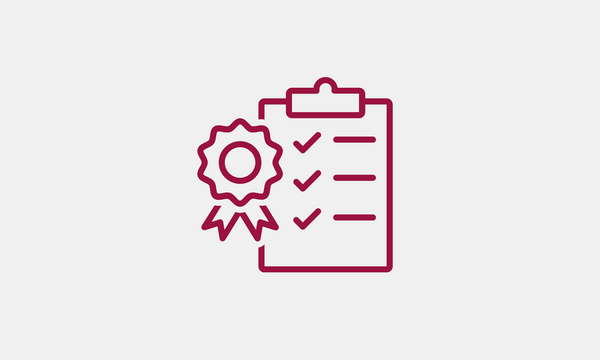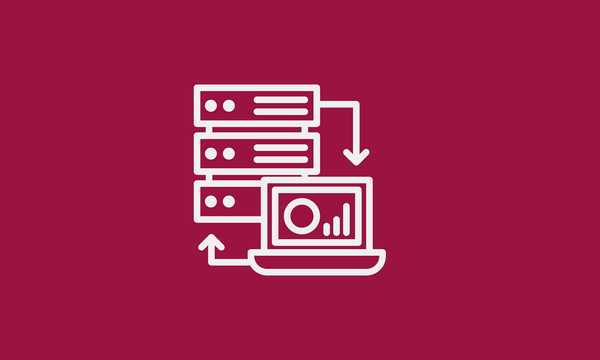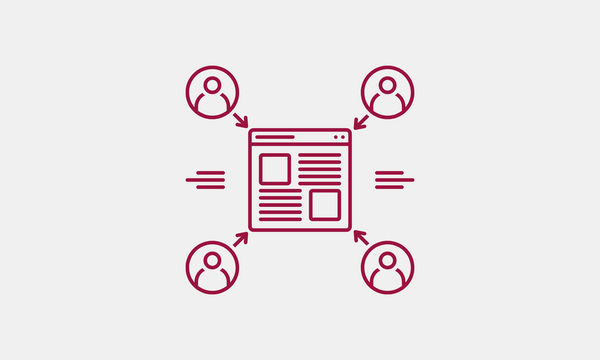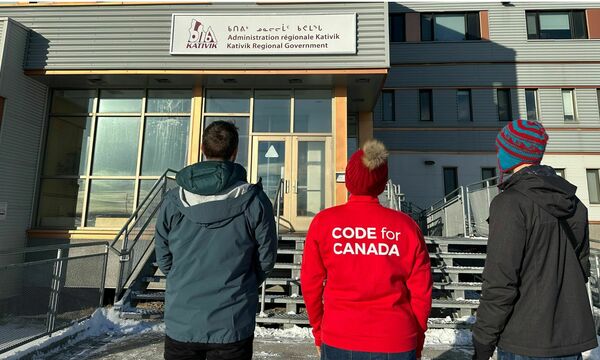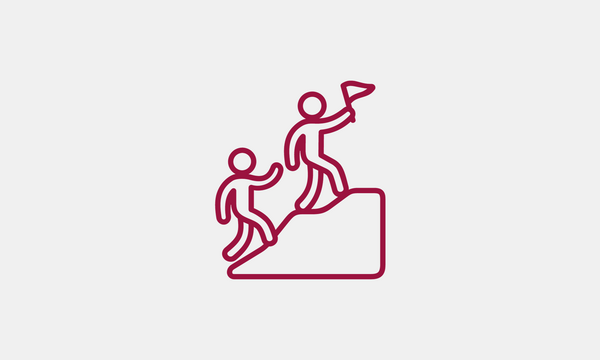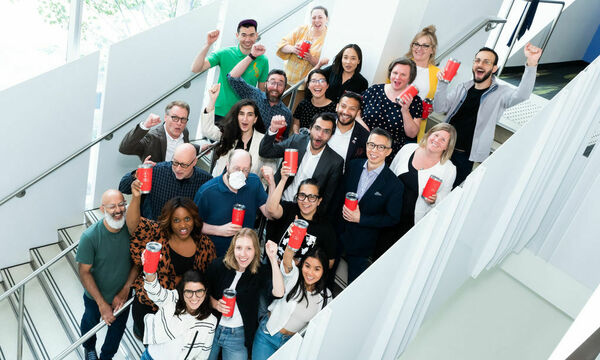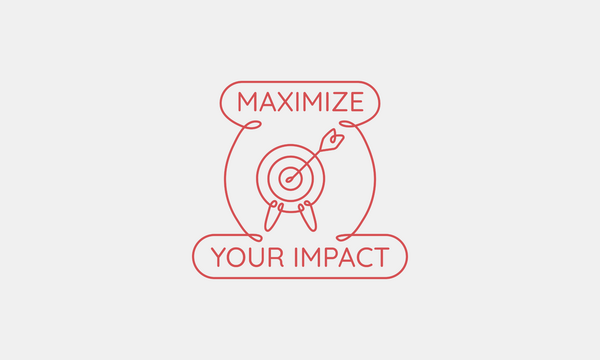Adult education for life, not just for a living

Santiago Mendoza
March 2, 2018
Meet the team
Hello! Bonjour! We’re the Ontario team for the inaugural 2017–18 Code for Canada fellowship. The team consists of Christine Lee (Product Manager), Sophie Sengmany (UX Designer), and Santiago Mendoza (Software Developer). There is such an amazing civic tech community in Canada and across the world, and we’re excited to contribute and participate in it.

We’re working with Ontario’s Ministry of Advanced Education and Skills Development (MAESD) to build a digital tool that improves the adult education experience. We’ll explain more about the importance of the project and the impact we hope to have in the next section, but for now let’s meet the team!
Christine has a unique background in digital product management, development, and finance. An advocate for lifelong learning, she volunteers at tech community workshops and hackathons in Toronto and has taught product management courses. Outside the office, she also dabbles in art and music.
Originally from France and having lived in London and Singapore, Sophie moved to Toronto four years ago. She has a background in finance but her passion for helping people and a desire to be creative led her to UX Design. She brings a strong focus on human-centred design to her work.
Santiago started out his career working as a software developer in Mexico, but had the chance to study abroad in Canada and was since bitten by the travel bug. A machine-learning enthusiast, he has worked for startups, well-established companies, and research institutions in North America and Europe.
A brief intro to adult education in Ontario
We work with MAESD but we also communicate with the Ministry of Education (EDU) and the Ministry of Citizenship and Immigration (MCI), as the three were mandated in September 2016 to collaboratively strengthen the adult education system. This graphic shows all current adult education programs offered in Ontario, and illustrates which ministry administers each program.

As you can see, there are a lot of different programs available to learners, and a lot of different entry points into the adult education system. For example, the Literacy and Basic Skills program offered by MAESD can be accessed through colleges, school boards and community organizations (and there’s also an online option for distance learning). Figuring out which of those doors is the right one to open isn’t always easy; frankly we fellows found it confusing, so imagine what the experience could be like for someone with learning or language barriers! There’s a need to more clearly communicate the depth, breadth and relevance of educational programming available to adult learners in Ontario, so they can easily discover the option that will help them fulfill their goals.
Challenges adult learners can face
Adult learners face a different set of challenges than ‘’traditional’’ students fresh out of high school. Many are responsible for dependent family members, and they often work full or part-time. Going back to school under these circumstances can require a leap of courage. Nevertheless, it’s also an opportunity to propel forward towards a bigger and brighter future.

Each year, almost 200,000 Ontarians participate in adult education programs. But there are about 700,000 Ontarians between the ages of 25 and 64 without a high school diploma who could also benefit. We’re working to understand what prevents those Ontarians from engaging with the adult education system. Awareness is one issue; some adults do not know there are free programs available. But based on our research, we’ve found adult learners face decision fatigue and analysis paralysis because of the disparate nature of information about adult education in the province. Learners lack a centralized, official source of information that would enable them to compare and contrast different adult education programs and decide which one is best for them.
Talking to users
We work iteratively. We take existing insights, make assumptions and identify unknowns, and formulate a hypothesis based on these. Then, we build a prototype to test our hypothesis, get it in front of users, and refine the product based on their feedback.

As such, a central part of our research has been talking to adult learners, to better understand their journeys and their experiences. Talking to users takes time and effort, but it ensures the tool we end up building will truly help them.
One of the first things we set out to understand was the pain points learners can face at their very first point of contact with the adult education system. We embarked on a “secret shopper” mission to see for ourselves the environment and interactions learners experience when they begin looking for educational programs. Each fellow picked one service provider and went to them to find more information about the programs they offer. We learned that the experience can be very intimidating! One service provider location that Santiago visited, for instance, had several security cameras by the entrance. The experience could also feel rushed, especially given how important choices about education can be. Sophie, for example, was asked to take an assessment and then was promptly enrolled in a program without being given an opportunity to share her goals or needs with anyone.

In January, we conducted our first focus group in Toronto with adults currently enrolled in programs funded by the government. We used this Jobs to be Done interview template to capture the journeys of learners. And then we coordinated a group activity in which learners were asked to imagine their ideal experience in adult education. We heard from many of them about the lack of awareness of programs, the lack of clarity about the steps they need to take to accomplish their goals, as well as the lack of support transitioning from education to employment. Hearing their stories motivated us to make the breadth of adult education opportunities easy to discover, understand and access for all adult learners in Ontario.
Next steps
Right now, we’re in the midst of a provincial road trip, conducting user research and focus groups outside of the GTA. Along with our colleagues at MAESD, we’ve visited Thunder Bay, Ottawa, Barrie and Kitchener! The trip has given us the chance to speak with a diversity of adult learners: Sophie and Christine met with members of the Indigenous community in Thunder Bay and Sophie and Santiago interviewed Francophone learners in Ottawa. We’d really like to the thank the MAESD regional offices, support organizations and service providers for working with us and the Lifelong Learning and Essential Skills Branch in MAESD to facilitate opportunities for us to learn from the learners!
Next up, we’re continuing to meet with service providers, from school boards, to colleges and community agencies, to learn about their own needs and pain points. We’re also scheduling interviews with potential learners from the deaf, deafblind and hard of hearing community. If our goal is to make the adult education system easy to navigate for everyone, then we need to meet, speak and learn from everyone!
We can’t wait to share more about the project, including our first prototype, with you, so stay tuned to the Code for Canada blog for more updates!
The Code for Canada fellowship embeds technology professionals into government, where they work alongside public servants to build great digital services for residents. To learn more about becoming a fellow, or hosting a team of fellows in your department, visit codefor.ca/fellowship.
